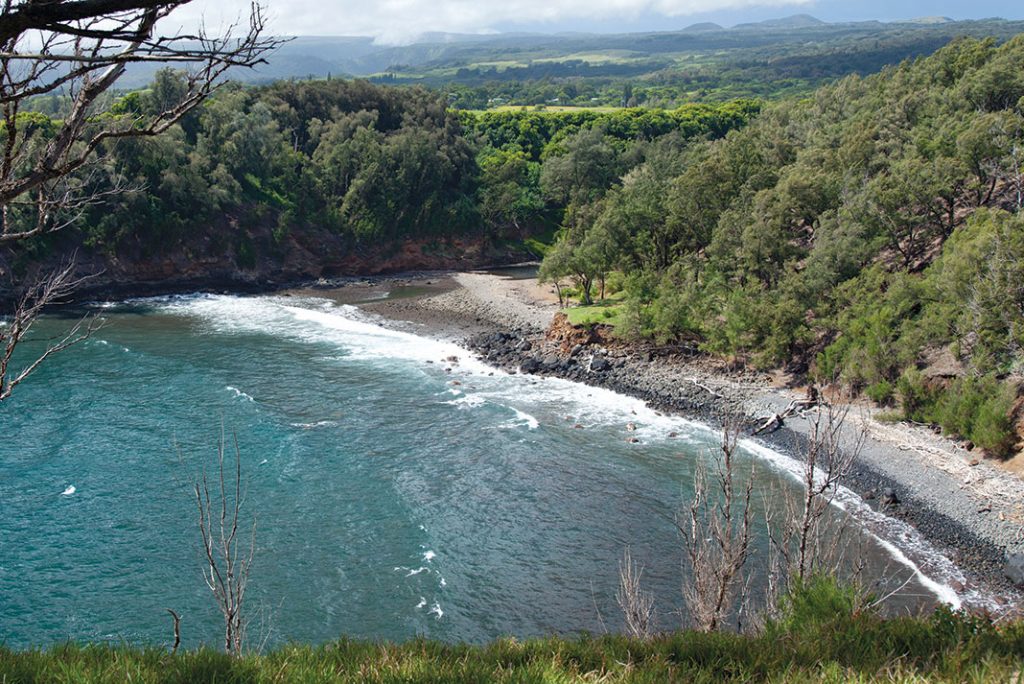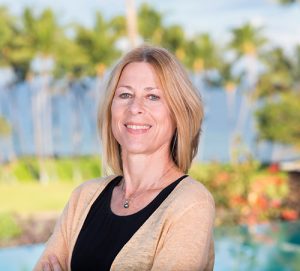By Teya Penniman


By Teya Penniman
What is the “highest and best use” of a property? One real-estate company has embraced an expanded answer to that question: it may include protection of environmental, historic and cultural uses—issues more typically the purview of land trusts and conservation groups. Hawai‘i Life is becoming a local leader in educating buyers and sellers about values beyond the ones connected to dollar signs.
Maui Nō Ka ‘Oi spoke with Beth Thoma Robinson, Hawai‘i Life’s director of conservation lands, to learn more about this new approach and what it means for buyers and sellers in the local market.
Would you explain Hawai‘i Life’s conservation initiative, and why a real-estate company would pursue it?
Some of us have been involved in sales where the property ends up going to a public purpose. One seller whose property we were marketing in the traditional way said he had spoken with the Trust for Public Land, and asked me, “Should we have that conversation?” I realized I couldn’t think of a better use for that property. We worked with the community to raise the funds and donated our commission, which counted toward the seller’s contribution. At closing, the title was turned over to a local nonprofit. That’s how I got involved with conservation uses. Then our CEO, Matt Beall, became chair of the Hawai‘i Island Land Trust (HILT) board. Sarah Bakewell, our director of corporate affairs, also joined the HILT board.
What we’re doing is not unique to Hawai‘i Life, but the company has become known for its interest and expertise in conservation and legacy lands.
What kinds of properties would qualify as conservation or legacy lands?
Lands that clearly should never be developed because of their scenic beauty, wildlife habitat, or cultural or environmental sensitivity. For example, in the 1960s, Laurance Rockefeller donated land containing iconic ‘Ōhe‘o Gulch to Haleakalā National Park. Lands may be purchased by a conservation buyer such as a government entity or land trust, or the owner may obtain a conservation easement that limits future development. A legacy property may have a cultural history; the buyer takes on the kuleana [responsibility] for protecting the site beyond their personal use. There’s a current listing in North Kohala: a ninety-two-acre property that has exceptional recreational, environmental, and scenic values, as well as identified archeological sites. It includes the canoe ramp built by Kamehameha I and a large heiau [temple] where he is said to have trained his warriors. After I explained the significance of the site to the seller, they agreed to pursue a public purchase. The appraisal they ordered deemed the highest and best use to be preservation—a first in my experience.
What would you tell potential buyers and sellers who are interested in learning more?
If you are looking to buy property that has conservation values, or you want to be part of protecting these lands and their culture, educate yourself about the history and talk to people in the community. Your development has less value if you lose the cultural value, the sense of place.
If you’re selling a property that has conservation or legacy values, we are happy to consult and connect you with the right resources. Normally, a seller wants the widest possible exposure, but if there is a mandate from the seller for how the property is to be used, we will educate agents and prospective buyers to find the right person for that purchase.
What makes this initiative unique?
What we’re doing in connecting this type of buyer and seller is not unique to Hawai‘i Life. But no other real-estate company in the state has taken the initiative to this level. We’re developing a list of properties with significant conservation values and posting them on our website, along with information about different conservation pathways. We’re happy to collaborate and share what we know with other agents, and we’re working to develop best practices in this area.
Hawai‘i Life also sponsors a real-estate conference every year. A few years ago, we started talking more about our sense of place, including Hawaiian values and aloha, and these have become our most popular presentations.
What does this kuleana mean for you, personally?
It means that I have to be a very good listener and involve my peers. We are sensitive to being a place-specific real-estate company within a state that has a set of cultural values. Those values include relationships between people, between people and the land, and even with those who have passed on. ItÕs both intimidating and humbling to be leading this statewide effort, but we believe that without these special places, without the ‘āina, there is no Hawai‘i Life.





